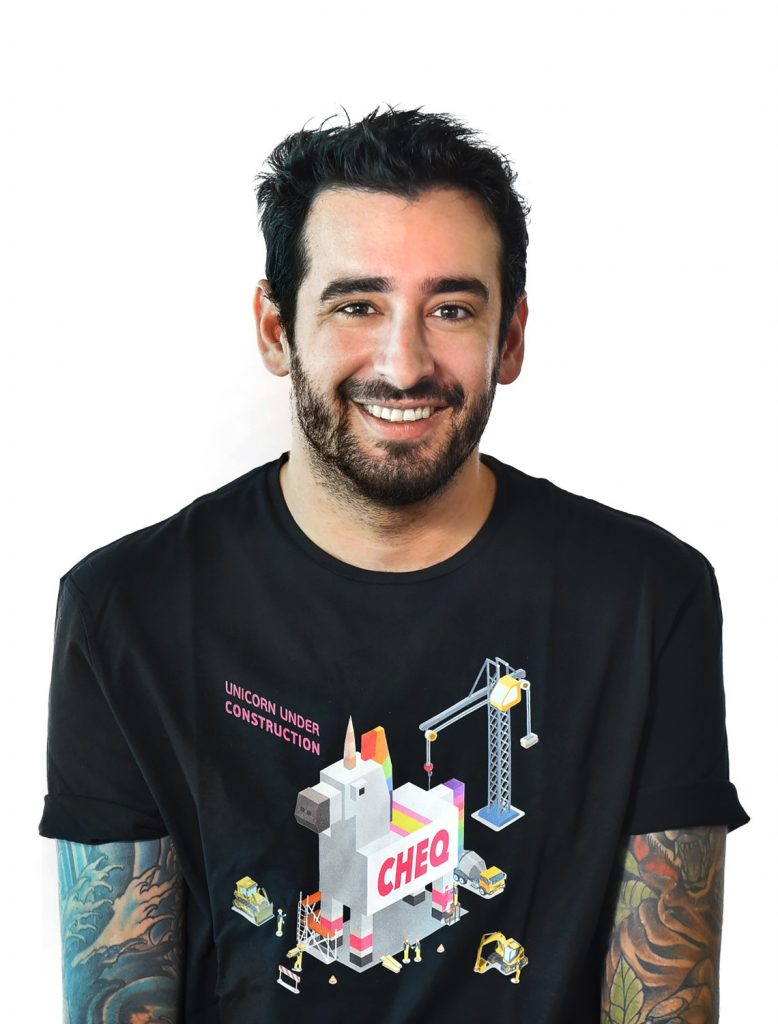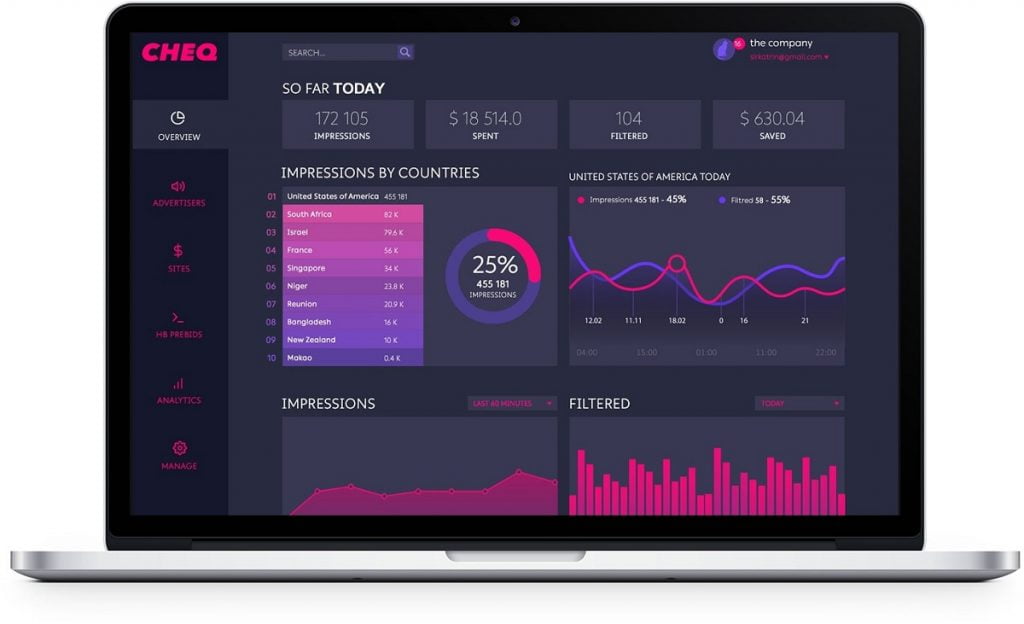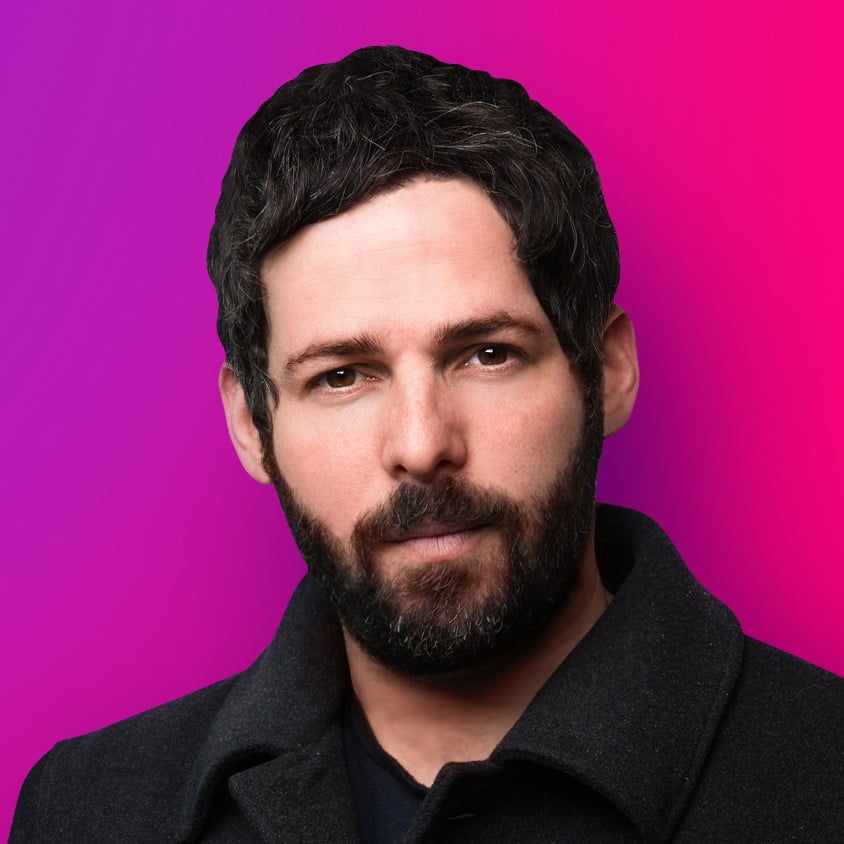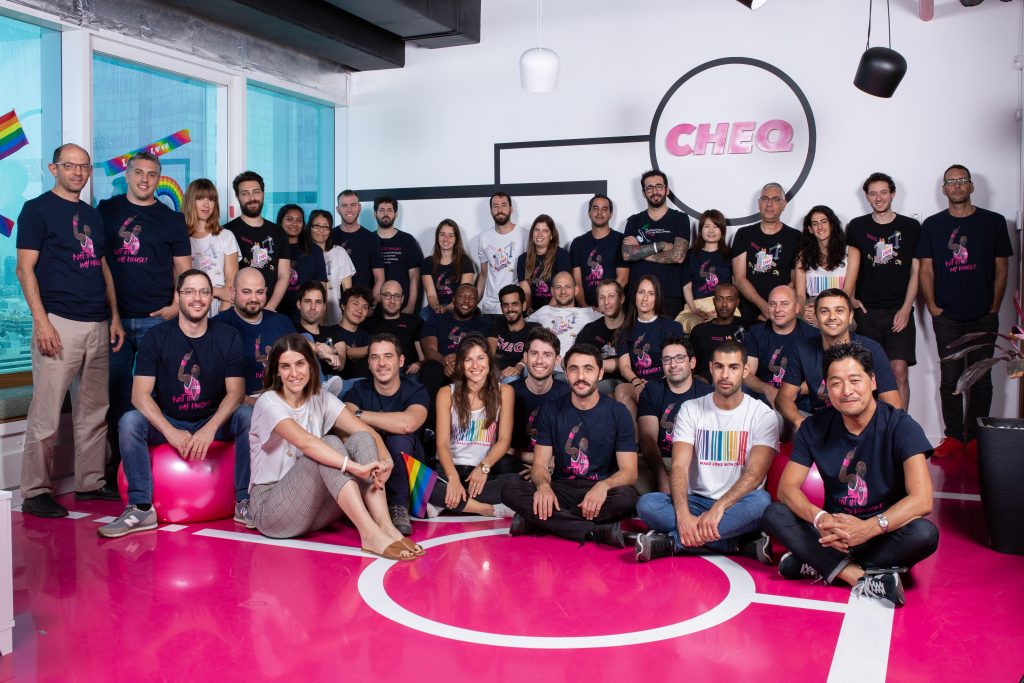Global online news publishers paid a hefty economic price for incorrectly blocking safe content on premium news sites in 2019, according to a report published jointly by Israeli cybersecurity company CHEQ and the Merrick School of Business at the University of Baltimore late last year.
US publishers lost $2.8 billion, UK publishers lost $220 million, Japanese publishers lost $98 million and Australian publishers $84 million, the report found. Their content was subject to keyword blacklists, a traditional but outdated method designed by ad verification providers to prevent brand advertising from appearing next to news content that might be considered offensive.
The problems with blacklists are that they come with a high rate of false positives, blocking advertisement opportunities that are actually valid and don’t need to be blocked. News site platforms are often entirely blacklisted because brands don’t want their ads to potentially appear next to negative headlines. Consequently, most brands are missing advertisement opportunities on some of the most well-trafficked websites that exist today.
SEE ALSO: World’s Largest Beer Brewer To Launch Cybersecurity Unit In Israel

“Blacklists are preventing the media industry from monetizing premium content, ultimately threatening the future of news,” CHEQ founder-CEO Guy Tytunovich told online publishing resource MediaPost Communications last month. “Brands are being denied the chance to appear on top news sites, which consistently deliver the most engaged online audiences.”
Publishers like US-based media companies Vice and Digiday have called on brands to reconsider keyword blacklists as a tool for brand safety after uncovering major flaws in them that steer marketers away from topics like race, religion, sex, and LGBTQ. Keyword blacklists regularly blacklist the wrong content, resulting in an inability to monetize popular content.
For instance, the report noted that of the 100 most-read news articles from The New York Times in 2019, only nine were considered brand-safe by keywords blacklists. A review on Game of Thrones was blocked for the word “death” and a review on the Oscar-winning Joker movie was blocked for “violence.” An article on Meghan Markle was blocked for the word “slavery,” (even though her family members are descendants of plantation slaves.)
While using these methods is better than nothing, their use inevitably leads to many missed opportunities and requires constant learning and optimization. Although advertisers block a lot of harmful activity, they block a lot of good activity as well.
“I won’t say it’s bad technology, it’s just not technology,” CHEQ Chief Strategy Officer Daniel Avital tells NoCamels.

CHEQ is making sure the safe content will stay. The company, founded in 2014 by Tytunovich, Ehud Levy, and Asaf Botovsky and active since 2016, is revolutionizing brand safety and ad verification practices by introducing cyber-based, real-time prevention capabilities.
“Advertisers want to avoid having their brand served alongside negative content, like Coca-Cola doesn’t want their ad on an article about diabetes,” Avital explained, “We were actually the first and today, the only, company analyzing this tech using natural language processing algorithms to determine the nature of the content and then ask, ‘Does that work with the advertising?'”
The Tel Aviv-based company has also realized that today’s cyber landscape is riddled with fast and automated bots and needs fast and automated ad verification.
Avital called it a $30 billion problem and said while competitors were catching the bots and going back to tell their clients — the advertisers — about them, they were not actually doing anything about actually getting rid of the bots.

“We were the first company that managed to crack the code, to perform our analyses within those 120 milliseconds [when real-time bidding on the ad occurs.],” Avital said, “At the moment the ad is placed until the ad is served — in that window of opportunity — we analyze the user extensively, looking at 1,000 different parameters.”
“It would be virtually impossible for any kind of bot to get by,” he said, “We would notify the client, ‘Do not bid on this user.'”
To analyze the user with modern technology, CHEQ uses artificial intelligence (AI) and military-grade natural language processing (NLP) algorithms to prevent brands from serving ads to brand-damaging content and fake bot traffic.
Sign up for our free weekly newsletter
Subscribe“CHEQ is a cybersecurity company in its core. We’re cybersecurity experts. We just came into the [ad verification] space and said, ‘Look, this should be dealt with by a company that has the resources to do so.’ The other [ad] companies haven’t caught up technologically,” Avital adds.
Sixty to 70 percent of the company’s 85 employees are either data scientists or AI and NLP developers and researchers, according to Avital.
The company’s mission is to help sustain the digital ecosystem by protecting leading advertisers from the risks of online advertising and helping them restore confidence in the space.
CHEQ hit the market only a couple years ago, Avital says, and since then has made heavy investments in R&D to continuously advance their technology and accuracy. In November 2019, the company raised $16 million in Series B funding round led by Battery Ventures and Israeli VC MizMaa Ventures, to continue this effort.
The world has taken notice of their unique strategy. The company, which currently has offices in Tel Aviv, New York City, Tokyo, and Shanghai, has won extensive media coverage in leading tech publications (Wired, TechCrunch) and has been called the Ad Fraud Solution of The Year in 2019 by global media platform The Drum, the biggest marketing website in Europe. The company also won the Tech Transparency Award 2019 for “lifting the curtain on ad verification” at the M&M Global Awards, which recognizes the very best in international media and marketing. The company also received a spot on CNBC’s 100 Most Promising Startups of 2019 list, among only three Israeli companies selected from more than 600 nominees globally.
Changing the industry one ad at a time
In early 2019, CHEQ’s technology could only identify the context around 36 semantic categories, a number which in the present day has grown to 200 news categories across 14 languages.
CHEQ says it has saved clients at least $5.8 million of wasted ad spend in the last year. The company serves brands, agencies, publishers, and platforms alike.
In June, the company began working with Turner, a division of AT&T’s WarnerMedia Group and Israeli in-game sale-side ad platform (SSP) Anzu to pilot a new solution that verifies that ads are delivered to people who play video games on a console like Microsoft’s Xbox or Sony PlayStation or a personal computer.
It marked the first ad verification solution for 3D console gaming.

When brands begin working with CHEQ, they communicate the type of content they do not want near their ads, the company explains to NoCamels. If Cheq doesn’t already have a trained model on that category, they first gather large amounts of data and train a new model to recognize the category. When the model reaches a 95 percent accuracy rate, CHEQ deploys it to its clients. The challenge in this process is when either the category is too broadly defined (e.g. “violence”), or when there isn’t sufficient data in the category to properly train a model.
The company’s ad fraud prevention entails similar analysis, but instead of recognizing semantic categories, CHEQ recognizes Sophisticated Invalid Traffic (SIVT), domain spoofing, zombie networks, and other threats. While real-time bids for ad space happen within 30 milliseconds, CHEQ has developed a solution to run in less so that their technology can automatically prevent ads from being wasted on illegitimate traffic. This eliminates the need for CHEQ’s clients to cyclically learn and optimize, constantly adjusting their blacklists. The company’s process for this recognition includes using dynamic code patching, OS and device fingerprinting, and honeypots on every impression.
Companies have started to realize that they need to start embracing a quality-over-quantity approach. For example, in 2017 JP Morgan Chase bank cut the number of websites they had their ads from a staggering 400,000 down to 5,000, without experiencing any significant change in their business.
SEE ALSO: Leading Israeli Firm JVP Inaugurates International Cybersecurity Center In New York
The change illustrates the new skepticism with which major marketers are approaching online ad platforms and the automated technology placing their brands on millions of websites, according to the New York Times.
The CHEQ platform aims to replace that skepticism with a solution that is fully autonomous, drastically reduces the number of false positives, and provides customers with a full real-time view into what exactly the algorithms will permit or block.
Related posts

Editors’ & Readers’ Choice: 10 Favorite NoCamels Articles

Forward Facing: What Does The Future Hold For Israeli High-Tech?

Impact Innovation: Israeli Startups That Could Shape Our Future




Facebook comments